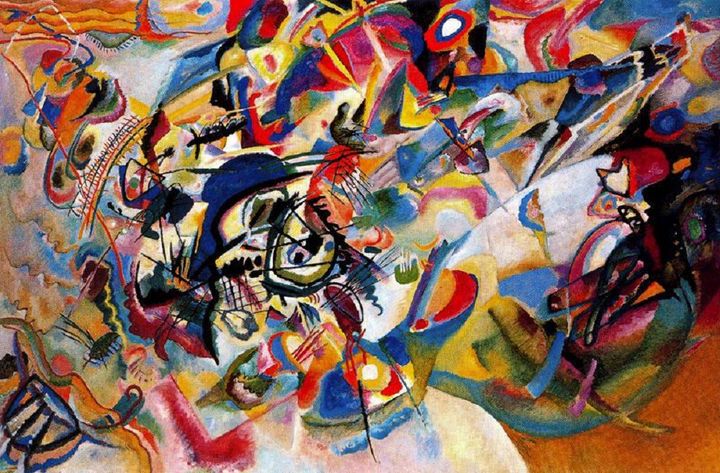The Post-Capitalist Internet
"... Most people are hooked to an endless flow of optimally stimulating content..."

📲 DM Guillermo Pablos Murphy on Tela:
tela.app/id/guillermo_pablos_murphy/621afa
💼 Add Guillermo Pablos Murphy on LinkedIn:
linkedin.com/in/guillermo-pablos-murphy
🐦 Follow Guillermo Pablos Murphy on Twitter:
twitter.com/NobleVibesOnly
Capitalism – the allocation of labour and goods by decentralized markets – is not what most internet users live in anymore. Digital platforms are not markets, they are fiefs. In these fiefs, one algorithm (often made by one team) controls what gets seen.
All ‘goods and services’ available on the internet are beneficiaries of the flow of information. Sharing, trending, tagging, commenting, liking, recommending – all these terms relate to the ever-changing state of hundreds of thousands of information mites propped up by human users and programmed algorithms. The lucrative current of the digital world is the flow of information. In parcels, information can be real, fake, stimulating, informative, based, cringe, boring, spam, etc., but as a body, the information flow is one thing above all: addicting. It is an addiction beyond the stimulation of the individual, it stimulates entire societies and economies. The world is addicted to the flow of information.
The digital flow of information is a social phenomenon as much as it is a programmable algorithm. Aided by technology, human users generate and share the most engaging parcels of information possible - content. Most people are hooked to an endless flow of optimally stimulating content. Indeed, it may be safe to say that the number of users not hooked is insignificant as it relates to affecting the future direction of human affairs. Furthermore, most users might as well be hooked, their connections to others, to their livelihood, to their community, to their cultures even, is all predicated on access to the flow of information. Herein lies the real power of the internet. The flow of information is now the engine of human activity.
In this digital environment, these fief-like platforms are treating the information flow like empires treated trade in the 18th century. In many respects, the internet has opened up a new frontier for human expansion, just like the exploratory ventures of the past did for colonial empires. The explosion of instant communication and endless information is the modern equivalent to the explosion of maritime trade and mercantile ventures. Information is not taxed on our online platforms, just as trade was not taxed in imperial colonies, Instead, the aim of the empire was, and the aim of the platform is, to control. Control the flow of information. Control the driver of human activity.
Possible Alternatives
In the social body, there is a feeling that a change is upon us. It has not taken the shape of a vision, but of the dread of gathering rainclouds. A foreboding. We sense the need to construct alternatives to our political institutions, to ready ourselves for the inevitable regime change driven by a lack of adaptation and a dwindling generational inheritance. Furthermore, there is an urge to be ready for the shifting balance of political hegemony as new geopolitical powers rise and old ones wither. There is an impression that social forces, religions and cultures, are shifting - that the molten rock beneath our social foundations is churning.
A collapsing empire is like sinking ship - it drags its crew down with it. As the empires we inhabit - digital or otherwise - fall, they will drag us down with them, collapsing our financial and mental health if not our physical as well. To avoid being dragged down with the current political order, we must construct alternatives - new digital platforms that are republics, not fiefdoms.
Alternative platforms need users. If alternative platforms are to succeed, they need to attract users away from fiefdoms. New platforms, like states, need a population. I suspect that users continue to use a platform, even if a better alternative is available, because their current platform is where their network is.
Network Migration
Migrating from one platform to another seems to be an individual phenomenon. Networks of users are hard to move. Network migration is a much rarer occurrence. One would like to think the digital space would be looser in their social ties. That if Platform A did evil, then its users would move to Platform B. The Twitter-X transition has proven that notion fanciful. Even through Twitter’s tumultuous takeover, during and after which it was pummeled by poor publicity, and with a rabid arrangement of alternatives, Twitter’s user base remains. Some rearrangement has certainly occurred, though it is doubtful any meaningful statistics can be drawn up of who left, who remained, and who joined. It is hard to establish networks, and this case seems to shows that it is similarly hard to move networks.
Meta, the company behind Facebook, WhatsApp, and Instagram, took a good shot at dismantling Twitter’s hegemony over the text-microblogging region of social media back in the summer of 2023. Their Threads platform was seemingly wise to import established networks of users by allowing Instagram users to migrate their relationships and contacts to Threads. The failure of Threads to remain as a standing competitor indicates there is more to learn about network migration, and possibly about the surprisingly limited competing space of social media.
Facebook is still dominant in user population, but does seem to have had an issue attracting the newer generations to its platform. These generations have their own platforms that have marketed to them and won them over. These generations don’t have their networks on Facebook, so migrating to it is a non-starter. Furthermore, this group-preference against Facebook is reflected by in-group culture: “Facebook is for boomers!” (Facebook is, if you will, cringe.) Facebook’s established networks of users, however, don’t seem to have migrated to another platform. It is simply that some new networks were not established there. The difficulty of migrating networks may be a hard reality of digital society. Short of long-lasting server outage, or mass disappearance of their members, networks may not migrate at all.
A new alternative digital platform, unless it has the technological power to wage a hacking war, must seek to establish new networks on its platform, or attract whole networks.
Further consideration on network migration is needed. Potentially, research into geographical migration may be instructive.
💼 Follow Tela Network on LinkedIn:
linkedin.com/company/tela-network
🐦 Follow Tela Network on Twitter:
twitter.com/tela_updates
🚀 Join Tela Network and become a consultant:

📢 Join the Tela Social channel on Telegram for every new update:
t.me/tela_social
📸 If you like the article images, follow Tela Network on Instagram:
instagram.com/tela_updates



